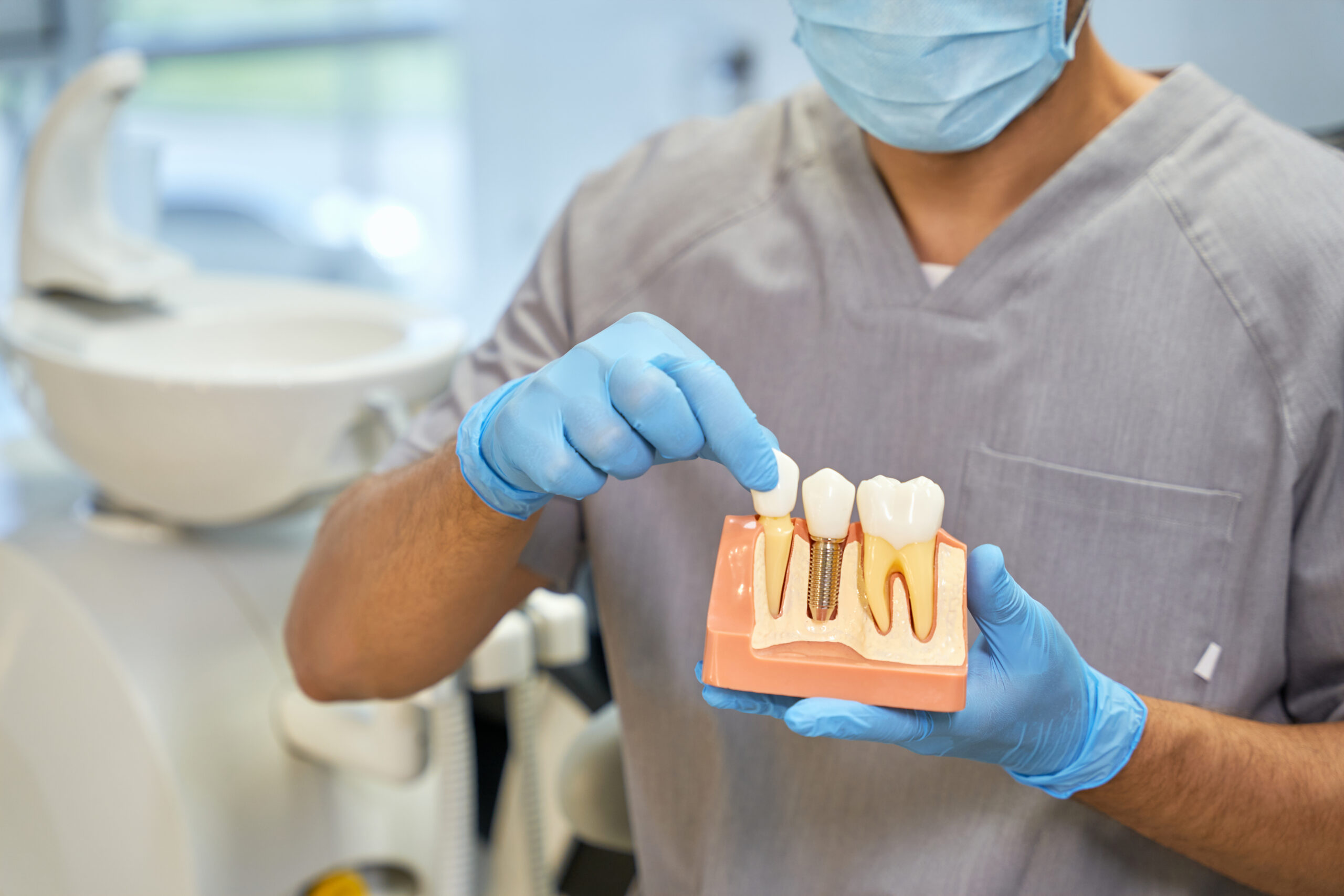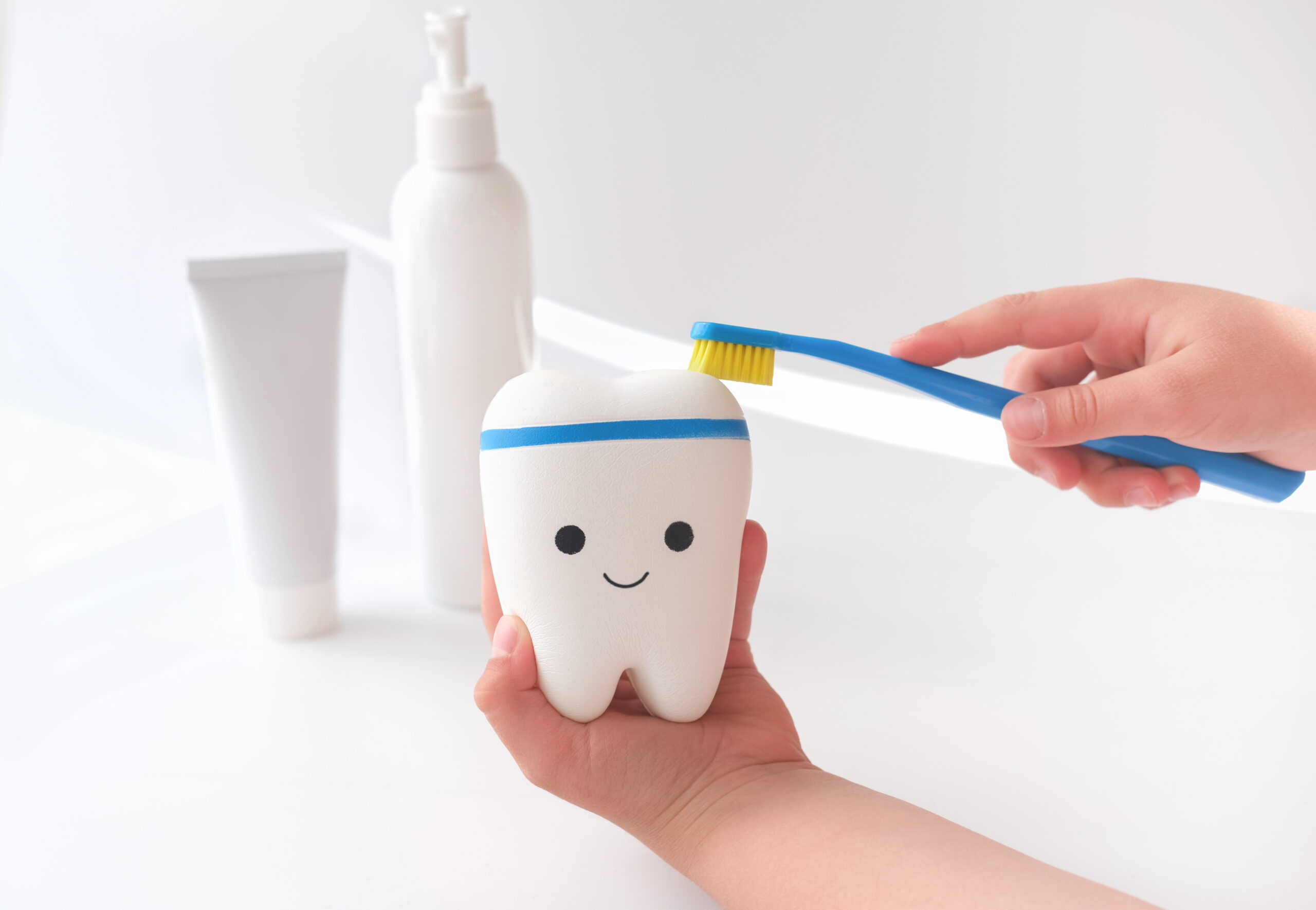Dental implants have become a popular option for people who are missing teeth or have severe dental problems to permanently restore their smile and improve their overall oral health.
Before getting dental implants, it’s important to have a thorough dental exam to determine if you are a good candidate for the procedure. You should also have a good understanding of the risks and benefits of this dental treatment. So if you’re considering dental implants, read on for our complete overview of everything you need to know.
What are dental implants?
Dental implants are artificial tooth roots that are placed into the jawbone. They are made of titanium or a titanium alloy and are surgically implanted into the jawbone. Once they are in place, they can be used to support a crown, bridge or denture.
Why would I get dental implants?
There are several reasons why you might consider dental implants; they can be used to replace one or more missing teeth, to support a bridge or denture, to improve your speech and chewing ability and to improve your overall oral health.
Are implants for me?
This is an important discussion you should have with your dentist. Your gums need to be healthy and you must have enough bone in your jaw to support the implant although it may be possible to have bone added (bone graft) to overcome this. You need to have good general health. Certain medical conditions and medicines can affect healing and mean that implants are more likely to fail.
Implants are also more likely to fail if you are a smoker.
What are the stages of dental implants?
The dental implant process typically involves several stages, including a consultation, a dental exam along with scans and radiographs (x- rays), implant placement, healing, and restoration. The exact process will depend on your specific situation and you should discuss this with your dentist.
Can I get dental implants on NHS?
Only in exceptional cases are dental implants available on the NHS. There are very strict criteria for funding of implants on the NHS.
How long do dental implants last?
With proper care, dental implants can last a lifetime. However, it’s important to maintain good oral hygiene and to visit your dentist regularly to ensure the health of your implants.Remember, implants can fail just like teeth if they are not properly cared for and the consequences of this can be expensive to treat.
What are the most common problems with dental implants?
The most common problems with dental implants include infection, implant failure, and damage to surrounding teeth or tissue. However, these problems are rare and can often be prevented with proper care and maintenance. Regular hygienist visits are essential for the long term retention of dental implants.
What are the side effects of dental implants?
Some common side effects of dental implants include swelling, bruising, and discomfort after surgical placement. However, these side effects are usually temporary and can be managed with medication and proper care.
How painful is getting a dental implant?
The implant placement process is typically done under local anesthesia, so you should not experience any pain during the procedure. However, you may experience some discomfort and swelling after the procedure as with any surgery, which can be managed with medication.
How do I care for and maintain dental implants?
Dental implants require proper care and maintenance to ensure their longevity and functionality. Here are some tips on how to care for and maintain dental implants:
- Brush and floss regularly: Just like natural teeth, implants require daily brushing and flossing. Use a soft-bristled toothbrush and non-abrasive toothpaste to clean your implant crown and surrounding teeth. Flossing and /or use of interdental brushes is essential to remove any food particles and plaque build-up between the teeth and implants.
- Use a water flosser: In addition to regular flossing, using a water flosser can help remove any food debris or bacteria that may be difficult to reach with traditional floss.
- Avoid hard foods: Hard foods such as ice, hard sweets, and nuts can damage your dental implants. Try to avoid these foods, or cut them into smaller pieces to prevent damage.
- Quit smoking: Smoking can lead to implant failure and other oral health issues. If you smoke, quitting can improve the longevity and success of your dental implants.
- Visit your dentist and hygienist regularly: Regular dental check-ups and cleanings are crucial to maintaining good oral health and detecting any issues with your implants early on. Your hygienist can also provide professional cleaning and maintenance for your implants.
By following these tips and maintaining good oral hygiene, you can ensure the long-term success of your dental implants.
In conclusion, dental implants are a safe and effective way to restore your smile and improve your oral health. If you’re considering dental implants, be sure to speak with your dentist to determine if they are right for you. With proper care and maintenance, your dental implants can last a lifetime.
If you’re considering dental implants or think they could be an option for you then get in contact with the friendly team at Kennett Road Dental to book a consultation.

